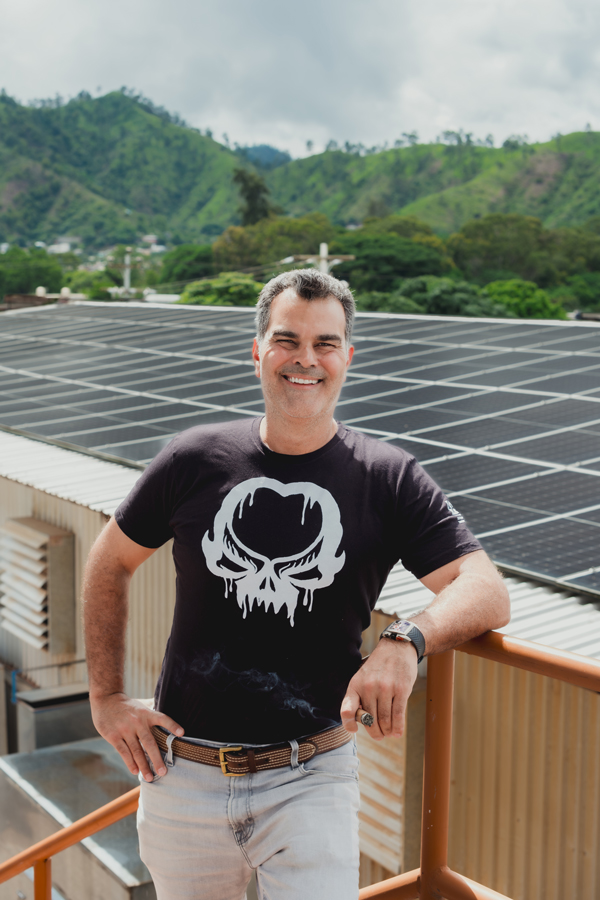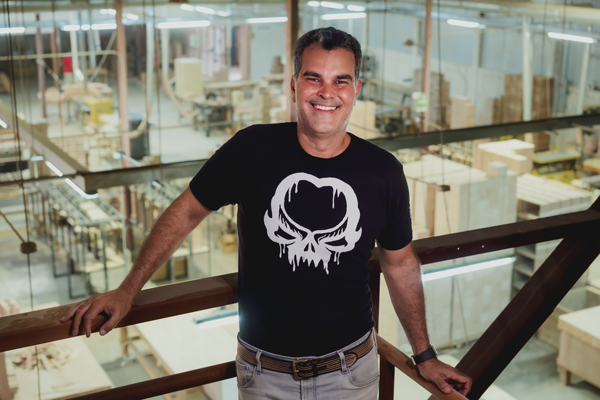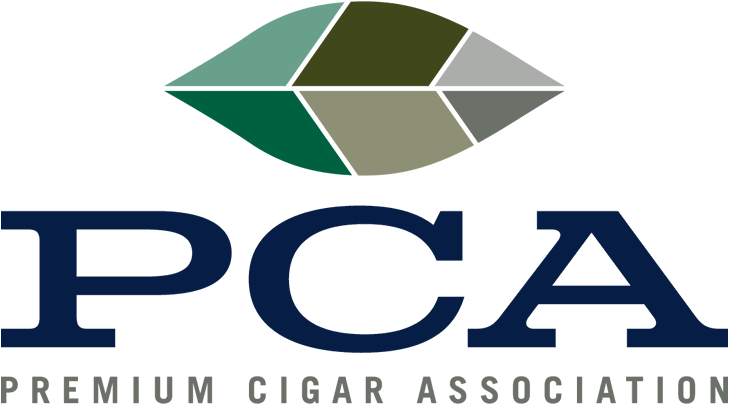There were many indicators in the early life of Christian Eiroa pointing him toward a future of entrepreneurship in cigar making. First, he grew up in Honduras and spent much of his time on farms. While other kids his age spent their days in playgrounds or exploring video games, the farm is where Eiroa discovered his own world of fun. His early life was filled with activities like riding horseback through the farm’s fields, driving tractors and Suzuki Jimnys, and holding on to the wings of the crop-dusting planes as they would taxi back to the hangar. When he had time off from school, Eiroa would work in fermentation at the factory. He did all of these things before he was nine years old.
Christian Eiroa has lived a very untraditional life, so when it comes to running a cigar company and brand, he takes a very atypical approach. After his family sold the Camacho brand, Eiroa launched his premium cigar brand, C.L.E. Cigar Company, in 2012. In January of the following year, he opened a cigar factory in Honduras next to the house where he grew up.
Building a Model Factory
As production within the factory grew, so did the building’s size. Eventually, Eiroa moved his company’s box factory to the same building. Cigar making and box production are two things a brand can outsource, but for Eiroa, the factory was necessary for traceability.
“I can trace back every single cigar on the shelf to the seed if needed,” he explains. “The farm is also key because we are the only people in the world who grow the authentic Corojo Seed. This is the base for all of our blends from Honduras.”

Traceability is just one byproduct of having a factory and field. Owning these two essential components of cigar production also gave Eiroa control over other aspects of the business, such as its cleanliness and being able to implement new systems and processes that would lead to a better product overall.
“I have always been strict about cleanliness and hygiene, but as the population in the building kept growing, so did the needs,” he stated. “The first thing I did was add an RO [Reverse Osmosis] system to provide clean droning and ambient water as we humidify the work area. This also benefitted the taste of our cigars because the water has no minerals. When you light any of our cigars, you feel a very clean and almost sweet finish.”
Clean droning is utilizing drones in a sustainable way, whether its using a quiet motor to reduce noise pollution or powering the drone with renewable energy. Ambient water is water that exists naturally from rivers, streams, lakes, etc.
C.L.E. Cigar Company’s factory also operates under Bayer CropScience’s Better Manufacturing Practices, which helps maintain strict hygienic practices within the factory. As part of this process, Bayer CorpScience also goes into each worker’s home and educates them on the best hygiene practices for their family.
“We are the cleanest farm and cigar operation in the world. Bayer CropScience certified our farms as having zero impact on the environment. Our factory abides by Bayer CropScience’s Better Manufacturing Practices, where employee protection is key. It is also the most hygienic factory, where workers walk through a special misting system. They also have to wash their hands every so often,” says Eiroa.
If it is unclear, cleanliness ranks high on Christian Eirora’s list of concerns and dramatically influences how his factory and farms operate. “I am very aware that cigars need to be clean and hygienic. It goes in your mouth!” Eiora explains. To ensure that C.L.E. continues to produce quality, clean premium cigars, everything—and everybody that works within C.L.E.—is kept clean, healthy and organized.
Christian Eirora is concerned that those working in the factory and farm are taken care of and kept healthy. “We have our own doctor at the factory. This allows our workers to get immediate care and to avoid any diseases spreading within our building. These services are also extended to their immediate family members.”
During the COVID-19 pandemic, cleanliness and hygiene were top concerns and priorities for Eiroa and his company. With the various wellness changes implemented during the pandemic, such as a mist tunnel, C.L.E.’s factory became a model for other factories throughout Honduras. The factory provided medicine for all its workers and their families, allowing C.L.E. to continue operating during this difficult time.
Being part of the Bayer CropsScience program benefits more than C.L.E.’s factory employees. It also gives the company access to green products and guidance on how to avoid contamination and protect the soil. Bayer measures C.L.E.’s mineral content and makes recommendations for which crops to rotate to return better minerals to the soils. C.L.E. has its own weather station, allowing it to better forecast and plan for water needs.
C.L.E. Goes Green
Every cigar C.L.E. makes is draw-tested. The factory is climate controlled for the workers’ comfort and to provide consistency across C.L.E.’s various cigar lines. “Perfection is the only acceptable outcome, or the pursuit of it, anyway,” Eiroa explains.
For Christian Eiroa, making cigars and growing tobacco is a personal venture. Not only does he set out to make the best cigars possible, but he wants to positively impact the community and country where he grew up. “To keep operating in the country that I was born in, I have to be a responsible corporate citizen,” he explains. “It is not enough to simply set up shop, start making cigars, pay a salary and say ‘thank you.’ I am committed to changing peoples’ lives and offering great opportunities. This applies to the community as well.”
Eiroa’s passion for making cigars without harming the environment started when he was very young. When Eiroa was a child, his father would tell him stories about agricultural development in Honduras dating back to the 1960s. Eiroa recalls being told about giant trees being chopped down as land was cleared. This story stuck with him and influenced how he would come to operate C.L.E.
“I can’t be a person who simply exists and doesn’t do anything to make this place better,” he explains. “No, I am not a whacky ‘greenie,’ but I just can’t stand by and not do anything at all when I have the ability to make a significant impact.”
As Eiroa grew older, he felt a strong need to become more active in his quest to make things better. One of his first steps was installing a drip irrigation system on his farm in 1995. A couple of years later, Bayer CropScience started to provide C.L.E. with clean products that would have zero impact on the soil. In 2021, C.L.E. switched all of its lighting to LED, and in 2023—following delays caused by the COVID-19 pandemic— Eiroa’s company went solar.
“Fifty-four percent of our power comes from the sun at 87 percent efficiency. The Honduran government does not yet buy power back, but once they do, we will go much higher,” he says.
Eiroa’s quest for more environmentally friendly cigar making has just begun. Currently, he and the C.L.E. team are working on designing a rainwater recovery system that will run through the company’s RO filtration system. This is being done in an effort to reduce C.L.E.’s dependence on underground water. Eiroa is also looking at technology enabling C.L.E. to convert water from air. The power sources need to be more efficient to implement this change fully.
Returning to the story from his childhood that had a big impact on him, Eirora is partnering with a forestry company to plant 68,000 new trees yearly to help restore Honduras’s greenery. “In my lifetime, I would like to get to 2 million trees planted,” Eiroa says.
C.L.E. has purchased equipment for its box factory that uses 25 percent less wood during cutting. “We only buy wood from controlled forests. This year, we also reduced the use of paint, sealants and glue,” he states.
Eiroa is continually looking for new ways to make C.L.E. known not only as a quality cigar brand but also for having a deeper meaning and impact. This includes working on a program where tobacconists and their customers will receive certificates for reusing cigar boxes. Eiroa hopes these certificates will provide a tax benefit to retailers and their customers while also allowing them to take part in reforestation efforts.

The Difference
For Christian Eiroa, making a premium cigar is a very personal business. “To me, each cigar either tells or represents a story. That story needs to mean something to someone who smokes a cigar,” he explains.
Eiroa’s story with cigars goes back to Honduras, its people, and the country he calls home. Eiroa doesn’t want just to make a cigar; he wants to make a difference, and C.L.E.’s continued growth and success have allowed him to give back to his country in a big way. While being environmentally friendly and sustainable are topics one only sometimes hears a cigar company speak about, it’s in the DNA of Christian Eiroa and his company. “Going green” can be seen as a significant investment in time, money, and resources, but Eiroa sees it all as worth the effort and his purpose as a business leader and brand owner.
“Environmentally, it is just self-gratifying,” he says when asked how his efforts have helped him grow better tobacco and make better cigars. “I really don’t think the local culture understands or appreciates it. Since the reforestation is out in the mountains, that is not felt, either. I do it because it is what I feel I can do to leave this place better than how I found it.”
Eiroa’s efforts to make cigars more sustainable and environmentally friendly have positively impacted the C.L.E. workforce, creating a much more comfortable and healthy environment for them to work in. Retailers and consumers can experience the difference in any C.L.E. or Asylum premium cigar they light up.
– Photography courtesy of C.L.E. Cigar Company. Story by Antoine Reid, content director at Premium Cigar Association (PCA). You can reach him at antoine@premiumcigars.org.
This story first appeared in PCA The Magazine, Volume 3, 2024. To receive a copy of this magazine you must be a current member of PCA. Join or renew today at premiumcigars.org/membership.
